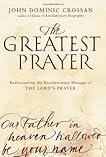 How can I even begin to review the book that, more than any other source, gave us the modern Christmas?!
How can I even begin to review the book that, more than any other source, gave us the modern Christmas?!
I've read A Christmas Carol at least 6 times and I always find something new to enjoy about it with each read. The narration is absolutely entrancing, the dialogue beautiful, and the story - even to call it "gripping" is to underestimate it.
The story is too well known to repeat here, but I should point out that, as a result of over saturation with many film adaptations, we don't properly understand the story. All too often, we think of Scrooge as a greedy miser who simply does not want to be charitable. Though this is correct, it is trivial and even peripheral to the character. Scrooge's basic problem is a failure to relate.
a tight-fisted hand at the grind- stone, Scrooge! a squeezing, wrenching, grasping, scraping, clutching, covetous, old sinner! Hard and sharp as flint, from which no steel had ever struck out generous fire; secret, and self-contained, and solitary as an oyster.
Nobody ever stopped him in the street to say, with gladsome looks, "My dear Scrooge, how are you? When will you come to see me?" No beggars implored him to bestow a trifle, no children asked him what it was o'clock, no man or woman ever once in all his life inquired the way to such and such a place, of Scrooge. Even the blind men's dogs appeared to know him; and when they saw him coming on, would tug their owners into doorways and up courts; and then would wag their tails as though they said, "No eye at all is better than an evil eye, dark master!"
But what did Scrooge care? It was the very thing he liked. To edge his way along the crowded paths of life, warning all human sympathy to keep its distance.
"At this festive season of the year, Mr. Scrooge," said the gentleman, taking up a pen, "it is more than usually desirable that we should make some slight provision for the Poor and Destitute, who suffer greatly at the present time. Many thousands are in want of common necessaries; hundreds of thousands are in want of common comforts, sir."
"Are there no prisons?" asked Scrooge.
"Plenty of prisons," said the gentleman, laying down the pen again.
"And the Union workhouses?" demanded Scrooge. "Are they still in operation?"
"They are. Still," returned the gentleman, "I wish I could say they were not."
"The Treadmill and the Poor Law are in full vigour, then?" said Scrooge.
"Both very busy, sir."
"Oh! I was afraid, from what you said at first, that something had occurred to stop them in their useful course," said Scrooge. "I'm very glad to hear it."
"Under the impression that they scarcely furnish Christian cheer of mind or body to the multitude," returned the gentleman, "a few of us are endeavoring to raise a fund to buy the Poor some meat and drink and means of warmth. We choose this time, because it is a time, of all others, when Want is keenly felt, and Abundance rejoices. What shall I put you down for?"
"Nothing!" Scrooge replied.
"You wish to be anonymous?"
"I wish to be left alone," said Scrooge. "Since you ask me what I wish, gentlemen, that is my answer. I don't make merry myself at Christmas and I can't afford to make idle people merry. I help to support the establishments I have mentioned -- they cost enough; and those who are badly off must go there."
"Many can't go there; and many would rather die."
"If they would rather die," said Scrooge, "they had better do it, and decrease the surplus population. Besides -- excuse me -- I don't know that."
"But you might know it," observed the gentleman.
"It's not my business," Scrooge returned. "It's enough for a man to understand his own business, and not to interfere with other people's. Mine occupies me constantly. Good afternoon, gentlemen!"
Seeing clearly that it would be useless to pursue their point, the gentlemen withdrew. Scrooge returned his labours with an improved opinion of himself, and in a more facetious temper than was usual with him.
Scrooge here comes off as an extreme libertarian who simply wishes to be left alone and to leave others alone; his affairs are no concern to them, nor should their affairs be any concern to him. He does not refuse to donate to the poor out of greed, so much as he simply thinks that he and the poor have nothing to do with each other, and he does no appreciate an attempt to get him to put himself in any kind of personal relation to them.
The story of his redemption is the story of reconnection. Scrooge remembers the relationships from his past, sees what relationships he fails to attain in the present, and, in the future, sees what life would be like if his wish to "be left alone" were granted ... he finally would be alone, "unwept, unkept, uncared for...." he finds that he cannot stand it.
So when you read A Christmas Carol read it with new eyes. Don't think of this as as story of a greedy jerk who learns to be kind and generous. Think of the novella rather as the tale of a man who thinks he wishes to be left to himself "warning all human sympathy to keep its distance" until he sees what that wish would really mean and what he misses out on by trying to live it.




